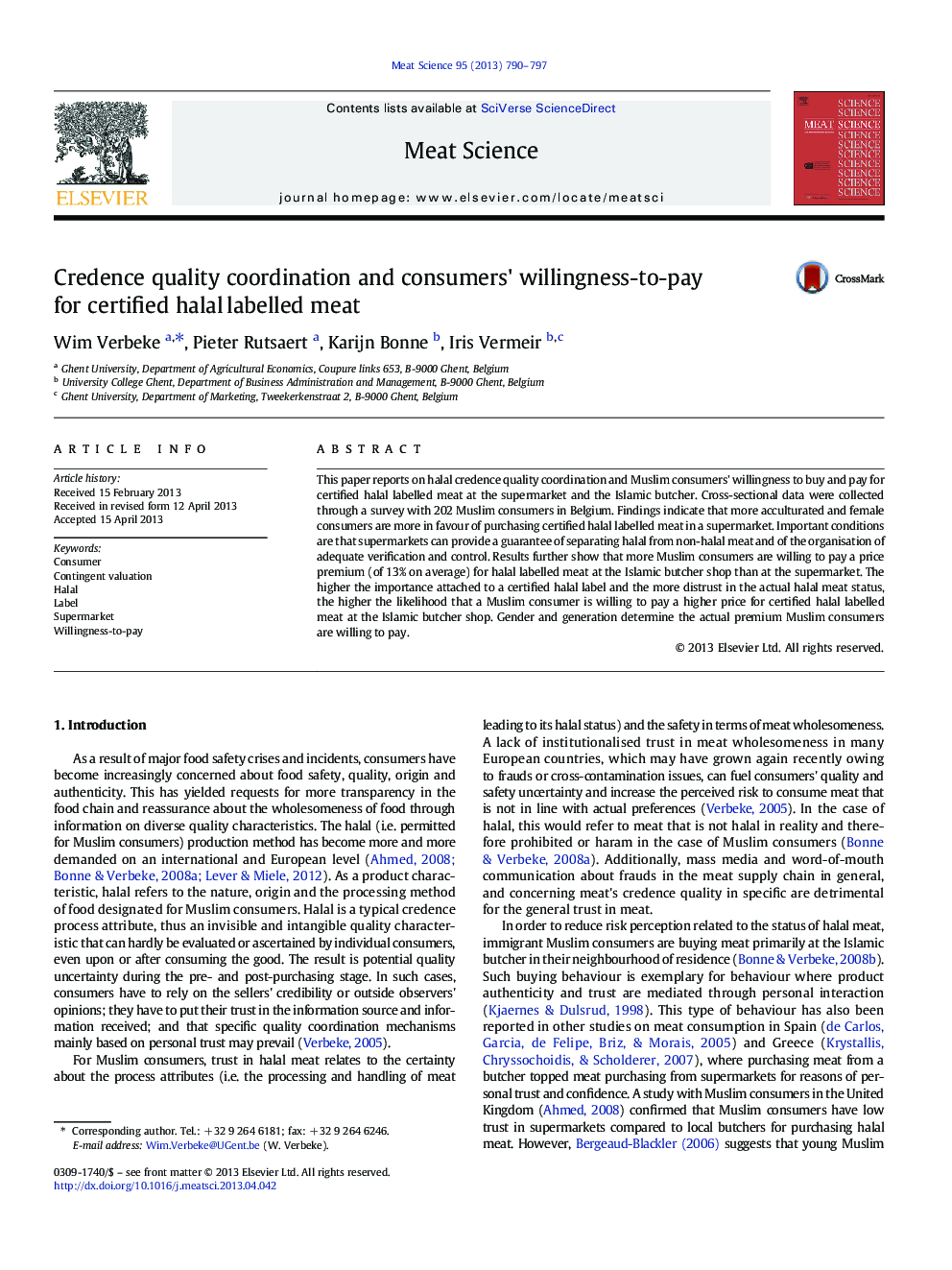| Article ID | Journal | Published Year | Pages | File Type |
|---|---|---|---|---|
| 5792126 | Meat Science | 2013 | 8 Pages |
â¢Halal quality coordination is domestic or civic based on trust or common values.â¢Hygiene, freshness and taste are perceived the most important halal meat attributes.â¢Half of the study participants claim to be willing to buy halal meat at supermarkets.â¢The average premium for halal certified and labelled meat is 0.90 â¬/kg or 13%.
This paper reports on halal credence quality coordination and Muslim consumers' willingness to buy and pay for certified halal labelled meat at the supermarket and the Islamic butcher. Cross-sectional data were collected through a survey with 202 Muslim consumers in Belgium. Findings indicate that more acculturated and female consumers are more in favour of purchasing certified halal labelled meat in a supermarket. Important conditions are that supermarkets can provide a guarantee of separating halal from non-halal meat and of the organisation of adequate verification and control. Results further show that more Muslim consumers are willing to pay a price premium (of 13% on average) for halal labelled meat at the Islamic butcher shop than at the supermarket. The higher the importance attached to a certified halal label and the more distrust in the actual halal meat status, the higher the likelihood that a Muslim consumer is willing to pay a higher price for certified halal labelled meat at the Islamic butcher shop. Gender and generation determine the actual premium Muslim consumers are willing to pay.
